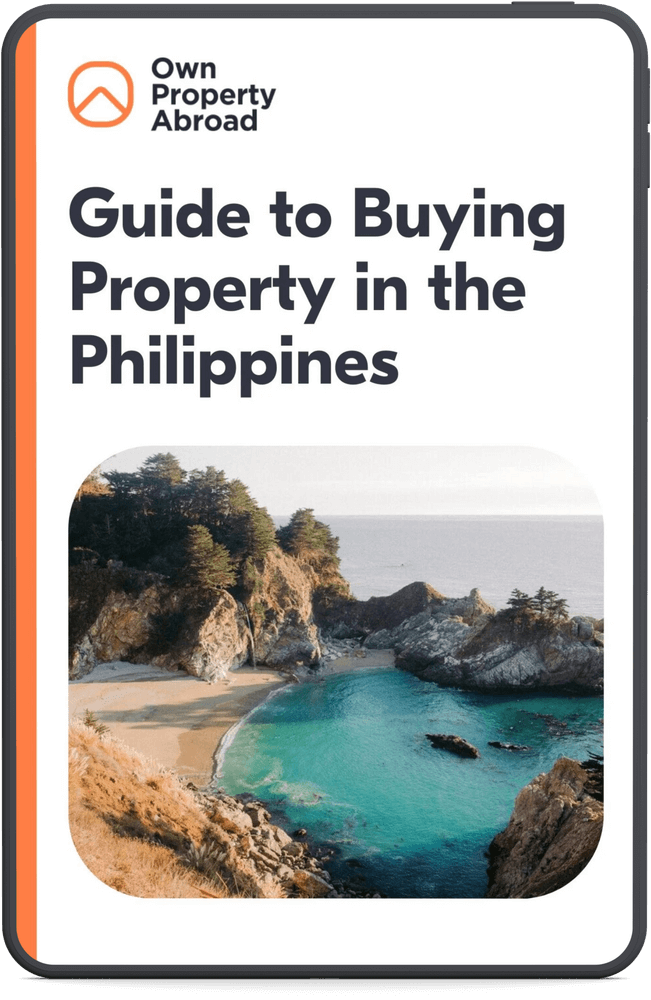What is the Condominium Act of the Philippines
The Condominium Act of the Philippines, also known as Republic Act No. 4726, establishes a comprehensive legal framework for developing, owning, and managing condominiums. It defines condominiums as buildings or complexes with individually owned units and shared common areas. This Philippine law outlines procedures for creating, registering, and overseeing condominium projects while delineating unit owners’ and management bodies’ rights and responsibilities. It also emphasizes adherence to building rules and regulations in the Philippines alongside maintenance obligations concerning common areas.
A summary of the Condominium Act of the Philippines for foreigners
The Condominium Act of the Philippines includes various rules and regulations that foreigners should consider when considering purchasing a condo in the Philippines. The following are some of the most common condominium laws in the Philippines:
- Foreign ownership limit: While foreigners can buy and own condo units in the Philippines, foreign ownership in a condominium building cannot exceed 40% of the total units. As long as this threshold has not been reached, foreigners may freely purchase freehold condominium units.
- Rights and responsibilities: Foreign owners enjoy similar rights as Filipino owners regarding their condo units’ utilization, modification, and saleability, as well as participation in condominium management affairs.
- Ownership transfer: The law mandates that any transfer or sale of a condo unit must comply with foreign ownership limits and may require approval from the condominium corporation and adherence to the master deed.
- Management and maintenance: Foreign owners must comply with the rules and decisions of the condominium corporation, which manages and maintains common areas.
- Rental or lease: Condominium unit owners, including foreigners, can rent or lease their units, provided they adhere to both the condominium’s regulations and Philippine laws. This presents an opportunity to generate income by investing in a condominium in the Philippines.
- Compliance with rules: Foreign owners must comply with all building regulations, fulfill any necessary association dues payment obligations, and adhere to all legal requirements stipulated by the R.A. 4726 Condominium Act of the Philippines.
How can foreigners buy a condominium in the Philippines?
As per the Condominium Act of the Philippines, foreigners can acquire a condominium unit. To buy a condo in the Philippines, foreigners must follow these steps:
- Verify the foreign ownership quota: It is crucial to ensure that the foreign ownership limit within the condominium complex does not exceed 40%, as stipulated by the Condominium Act.
- Choose a condominium: Seek assistance from a real estate agent or conduct online research to find a condo unit that suits your preferences and budget.
- Perform due diligence: Thoroughly evaluate the property, including the developer’s reputation, and review the condominium’s certificate of title, master deed, and purchase agreement. Both property and contract due diligence are equally important.
- Secure financing: If necessary, secure financing for the purchase. Foreigners often need to use personal funds, as obtaining local financing, like housing loans, can be difficult. This entails ensuring that funds are available in a Philippine bank account.
- Signing the reservation agreement: Initiate legal formalities by signing the reservation agreement.
- Pay the down payment: Make the down payment, which is usually between 20-30% of the purchase price.
- Fulfill other contract obligations: Complete all remaining contractual obligations to finalize the purchase process and officially become the owner of your new condo unit in the Philippines.
Selling a condominium in the Philippines as a foreigner
Foreigners can sell their condominium units in the Philippines under the Condominium Act.
- Compliance with ownership transfer regulations: Adhere to rules outlined in the master deed and obtain approval from the condominium corporation if necessary. Also, comply with the regulations stipulated in the Condominium Act of the Philippines.
- Market the property: You may choose to sell the property yourself or hire a real estate agent to help market it. Although hiring an agent incurs fees, they can help you secure a higher selling price for your condo unit.
- Negotiate the sale: Engage with potential buyers to negotiate an agreeable price. Real estate agents can assist in securing the best deal for you.
- Legal documentation and transfer: Finalize all necessary documents for selling and transferring condominium ownership.
- Payment and taxes: Ensure receipt of payment and settle any applicable property taxes and fees. Working with a legal agent who can assist with tax reporting and filing in the Philippines is advisable.
Expert assistance with buying property in the Philippines
Navigating the Condominium Act of the Philippines (Republic Act No. 4726) can be challenging, but our experienced team is here to help. We offer comprehensive support, from understanding legal requirements and regulations to finding the perfect property and completing the sale. Whether you’re a first-time buyer or an experienced investor, we provide personalized assistance tailored to your needs. You can also email us at [email protected] for detailed inquiries and specialized guidance. Contact us today to ensure a smooth and successful property purchase in the Philippines!
Frequently Asked Questions (FAQs)
What does perpetual ownership mean?
Perpetual ownership means having indefinite ownership rights over a property. Unlike leasehold, where ownership rights are for a fixed period, perpetual ownership grants the owner the right to own the property forever without needing renewal or reacquisition.
What is a condominium?
A condominium is a residential complex where individual units are owned separately, while all unit owners jointly own common areas like hallways, pools, and recreation rooms. Condominiums offer a unique blend of private and communal living. The Condominium Act of the Philippines governs the rules and regulations regarding condominiums in the country,
How can I find condo units for sale in the Philippines?
To find condominiums for sale in the Philippines, explore online real estate portals, work with local real estate agents, or check listings in property-focused publications. Attending real estate fairs and exploring developments in desired locations in the Philippines are also effective strategies.
What are the rights of condominium unit owners in the Philippines?
Condominium unit owners in the Philippines have rights such as occupying and modifying their units, participating in condominium corporation meetings and decisions, using common facilities, and being involved in the management of shared areas, according to the Condominium Act of the Philippines.
Do foreigners have the same condominium rights as Filipinos?
Foreigners have the same rights as Filipino citizens in owning condominium units, subject to the condition that foreign ownership in a condominium project does not exceed 40%. This includes rights to ownership, use of facilities, and participation in condominium management, as stipulated in the Condominium Act of the Philippines.








2 Responses
I ravindra from india, interest to buy property in Phillipines Batangas. An I eligible for it ?
As a foreigner, you can buy property in the Philippines under certain conditions. You can own condominium units, but not land. For land, you can lease it long-term or consider setting up a corporation with Filipino partners to purchase the property.